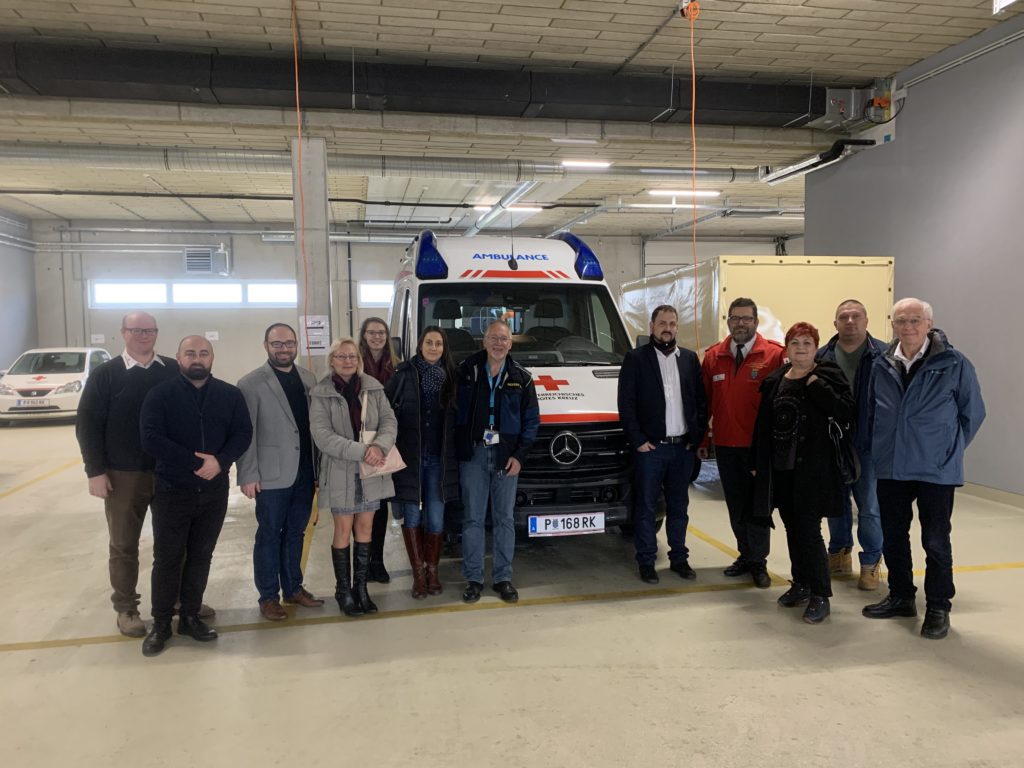
Within the framework of our Legal Accessibility project, financed by the Ministry of Justice of Hungary, on 9-10 December CESCI organized a study tour to Lower Austria in order to get familiar with the details of the Austrian-Czech cross-border cooperation in the field of EMS and health care. The study tour was attended by the experts of the National Ambulance Service and Ministry of Human Capacities of Hungary, as well as the professionals of the ambulance services of the neighbouring EU countries. The study visit aimed to prepare the launch of cross-border EMS cooperation between Hungary and its EU neighbours.
The first agenda item of the study tour was the visit of the coordination centre of the NÖTRUF 144 Niederösterreich. The Chief Executive Officer of the organization, Christof Constantin Chwojka greeted the delegation and gave his support for the cooperation in the future. After that, Siegfried Weinert and Christian Legler staff members for planning, preparing and managing the cross-border cooperation initiatives took the floor. They introduced the details of the structure and operation of NÖTRUF 144, including the coordination mechanisms concerning the EMS and further healthcare services, as well as the background infrastructure together with the applied technical solutions. The participants had the opportunity to get an insight into the routine of the dispatchers; in addition a cross-border cooperation case was simulated in practice presenting the on-line application for dispatchers in operation. The participants posed several questions, as a result of which the previously indistinct aspects were clarified.
The second day started in the Universitatsklinicum St. Pölten, where Mag. Dr. Bernhard Kadlec commercial director shortly introduced the hospital, then showed the emergency and supporting departments to the participants. The university hospital offers high quality care especially in the field of cardiology and neurology. They accept 500 000 out-patient per year in 18 departments. In addition, they operate their own, digitally-based logistic centre which provides several hospitals in the region with equipment and medication on a daily basis.
In the remaining part of the morning, Elke Ledl, representative of Nögus presented the Lower-Austrian ‘Healthacross’ initiative aiming to enhance cross-border cooperation in the field of healthcare. She introduced their first INTERREG-V project implemented with the participation of Gmünd and České Velenice, which grounded the current widespread cooperation of the Lower-Austrian and Czech provinces as a result of a 13-year long work. Finally she spoke about the initiatives launched together with Slovakia and Hungary. She highlighted that beside the political will to cooperate, the information of citizens are also crucial in order to eliminate the mental border existing in their daily routine.
As last agenda items, the group visited the Red Cross’s EMS station in St. Pölten, then the disaster and logistic centre in Münchendorf, where Michael Sartori held a short briefing on their activity and showed the group around. In Austria, 90% of the emergency medical services are provided by the Red Cross.
The overall conclusion is that the Austrian – Czech cooperation is exemplary in terms of its aims, as well as the simplicity and transparency of its operation. Of course, there are special aspects to be negotiated in a bilateral manner, but it can be stated that it would worth adapting the model in Hungary and the neighbouring countries.
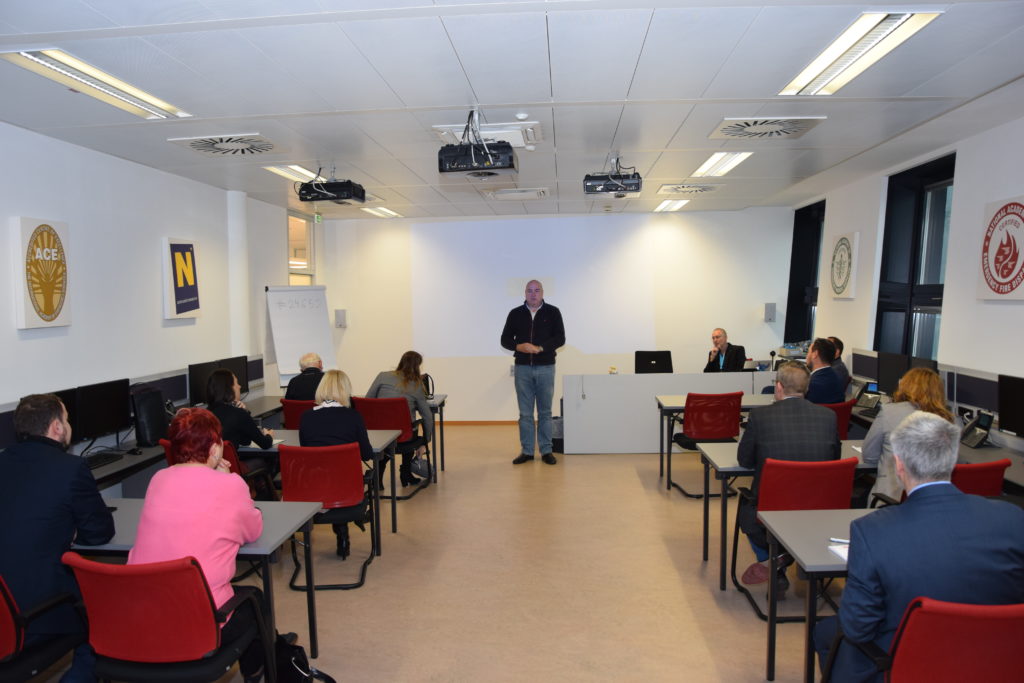
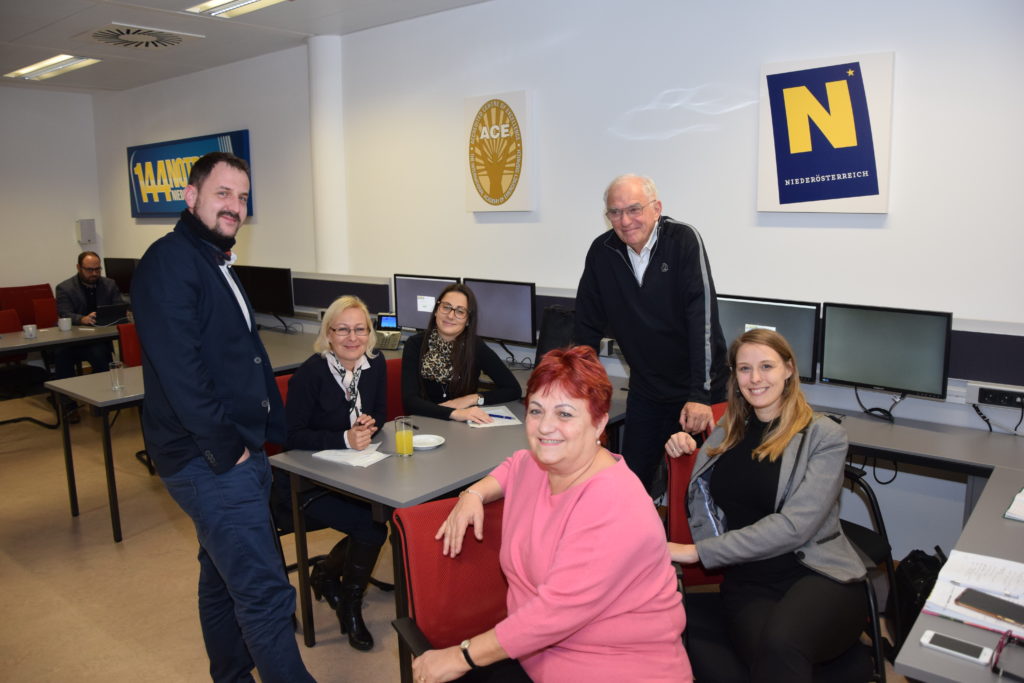
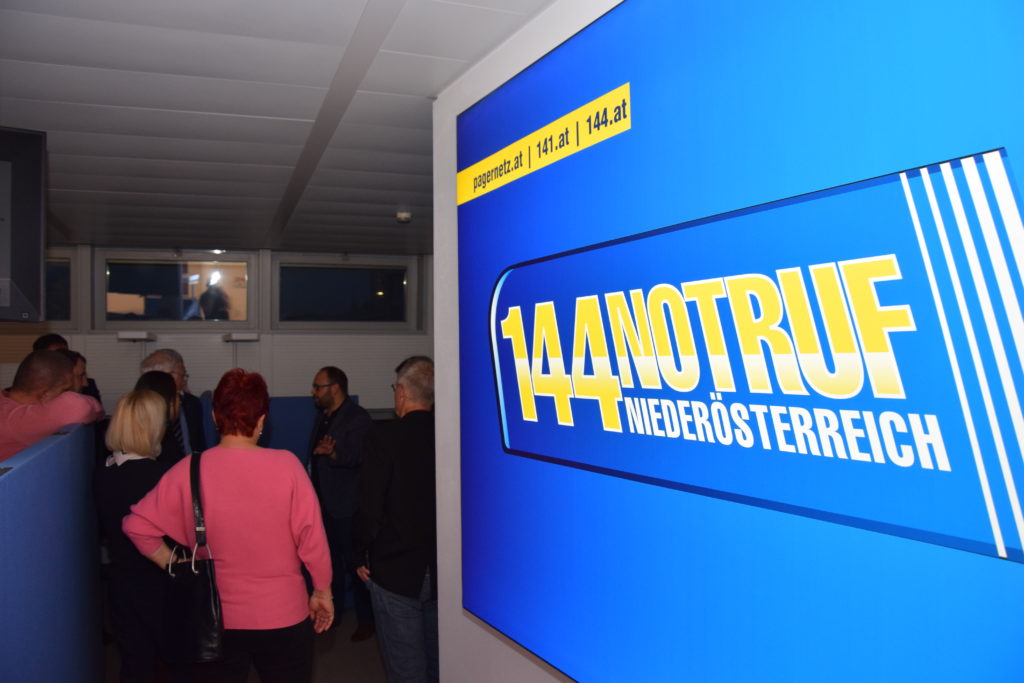

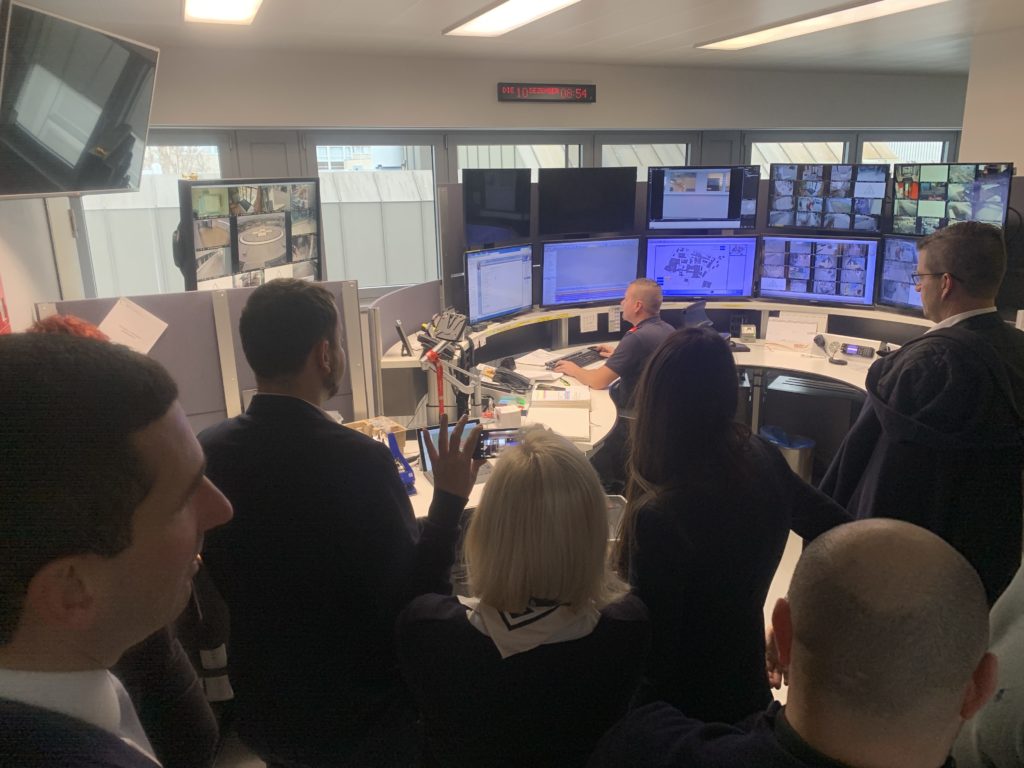
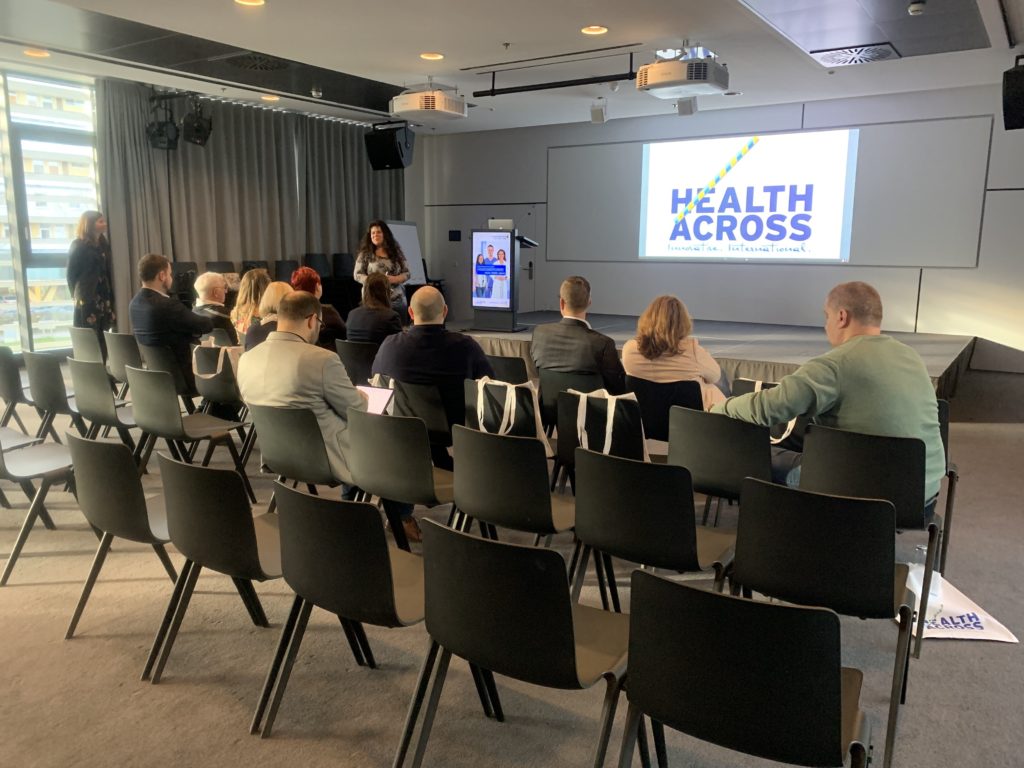

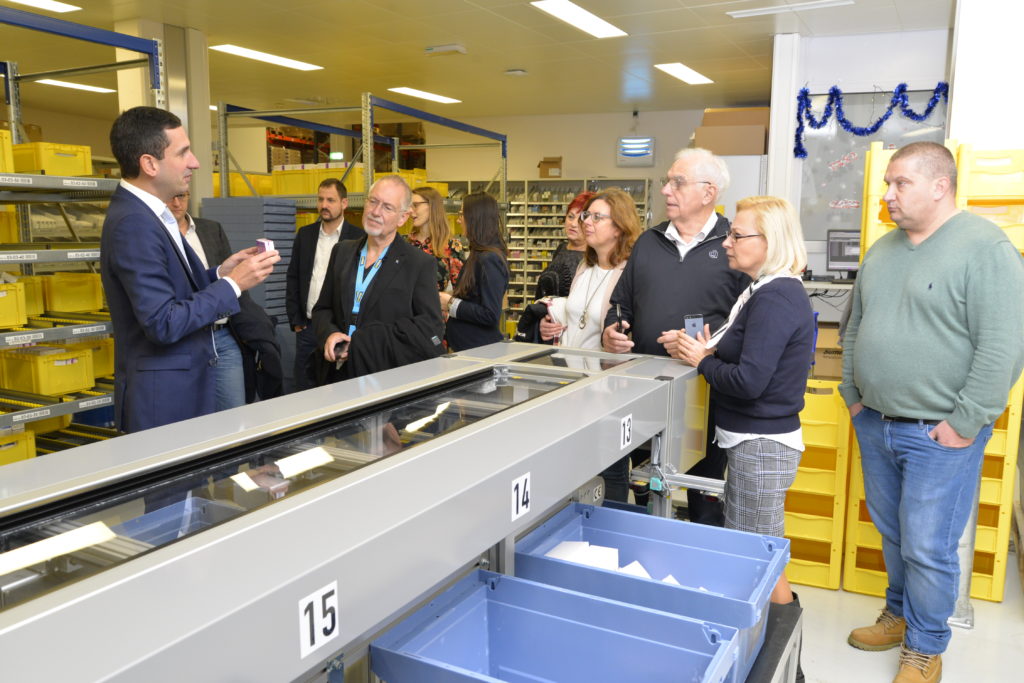
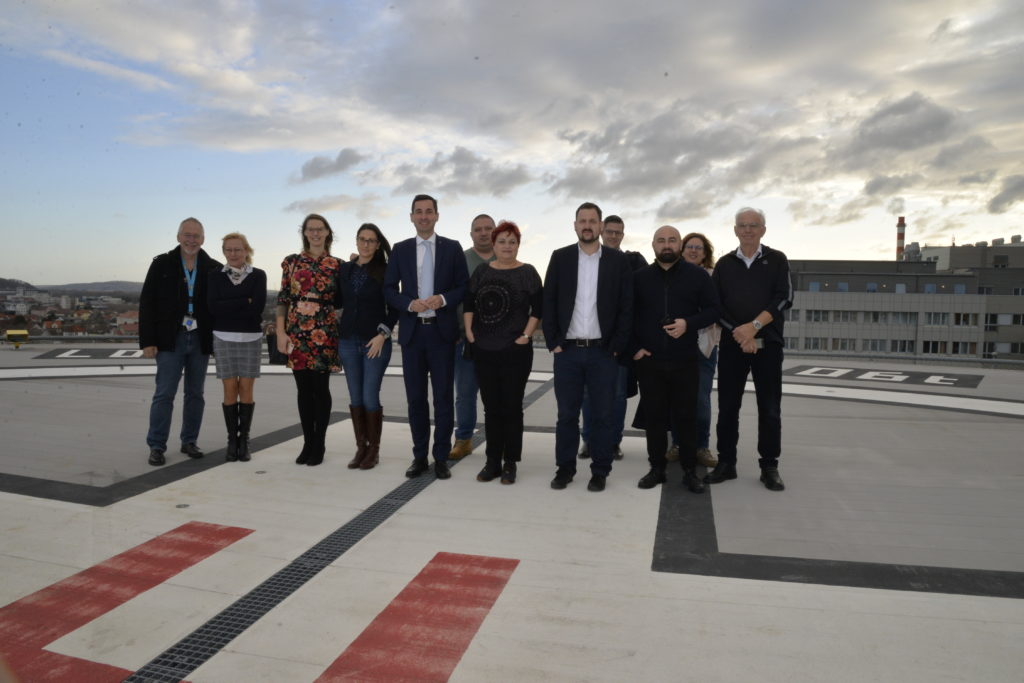
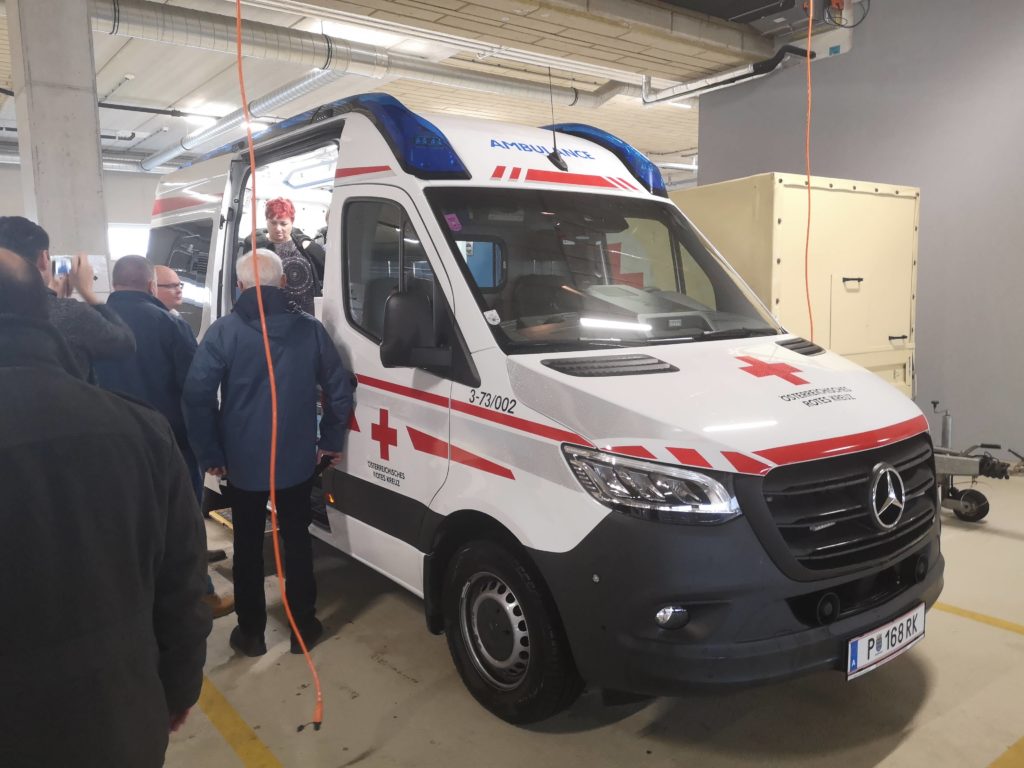
dav